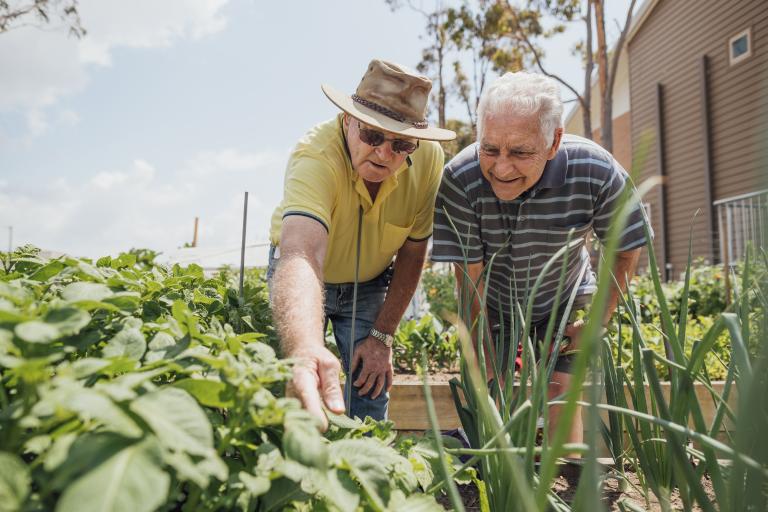
Eating well while staying home
On this page
Please note
The information on this page is of a general nature. If you have any health concerns or need individualised advice, talk to your GP or an Accredited Practising Dietitian.
There are times when it might not be possible to go out to the shops or to your usual activities. The information on this page will help you to prepare for and manage meals during these times.
Preparing for staying at home
- There is no need to stockpile food, but there are some things that you can do to prepare for times when it’s not easy to leave the house.
- Write a shopping list for any trips to the shops or online orders. Try to buy some foods from each of the five food groups, including longer-life options from each group.
- Aim to keep enough food in the house to keep you going for a few weeks at a time in case you can’t make it out. You can gradually build up to this – try adding a couple of long-life items to your regular shopping lists over a month.
- Look at your local shop’s range of frozen meals – these can be a great option for days when you don’t feel like cooking. Look for meals that contain a meat or meat alternative, such as lentils, beans or legumes, and avoid buying ‘diet’ meals.
Get some ideas for handy foods from each food group here
Eating well at home
- Eat regular meals, even if it is just you at home. It is important to eat regularly to stay healthy. Try to include some different foods from each of the five food groups every day.
- Drink plenty of fluid. Try keeping a jug in the fridge and sipping on cold water throughout the day.
- Follow the alcohol consumption guidelines and avoid excessive drinking.
- If you cook a meal, think about doubling the recipe and freezing leftovers in individual serves.
- If you are going to be at home for a longer time and feel unsure about going to the shops, think about online shopping. Most major supermarkets will prioritise deliveries to seniors and people with disabilities.
Get some quick and easy meal ideas here
Get some ideas on how to increase your fluid intake here
Find out more about the alcohol consumption guidelines here
Get some tips on where and how to buy groceries online
Looking after your mental health at home
- Looking after your mental health is important. Poor mental health can impact on your physical health, including on your appetite. If you are experiencing poor mental health, it is important that you speak with your GP or mental health practitioner.
- Link into a day centre or social group if you can.
- Stay connected with family and friends however you can. If you aren’t able to visit with loved ones, staying in touch through video calls or phone calls are also an option.
- Remember that support is always available. If you are struggling, see a list of free support services below.
Free support services
- Beyond Blue on 1300 224 636
- Lifeline on 13 11 14
- Friend Line telephone support service on 1800 424 287
- Older persons COVID-19 support line on 1800 171 866
